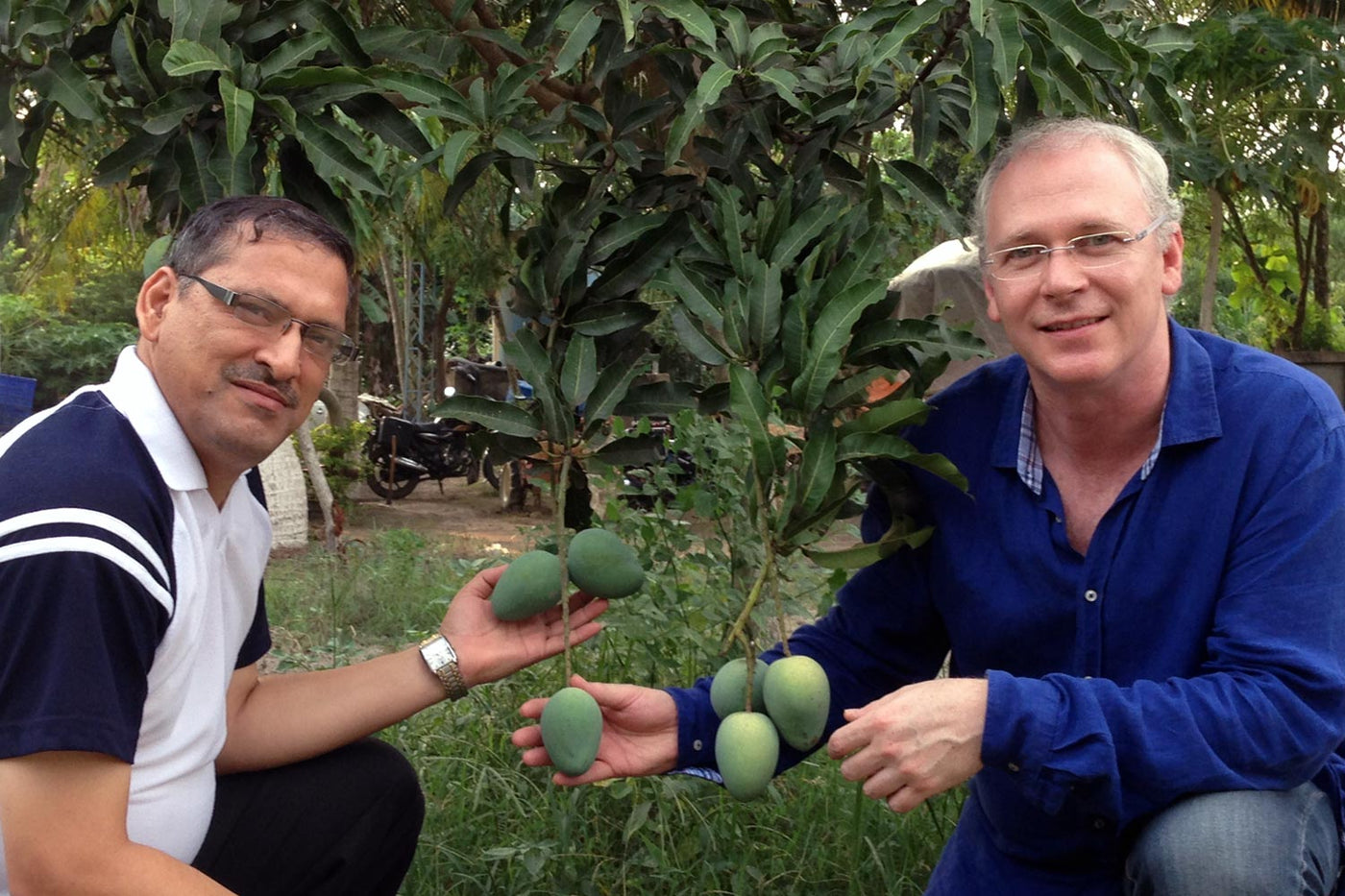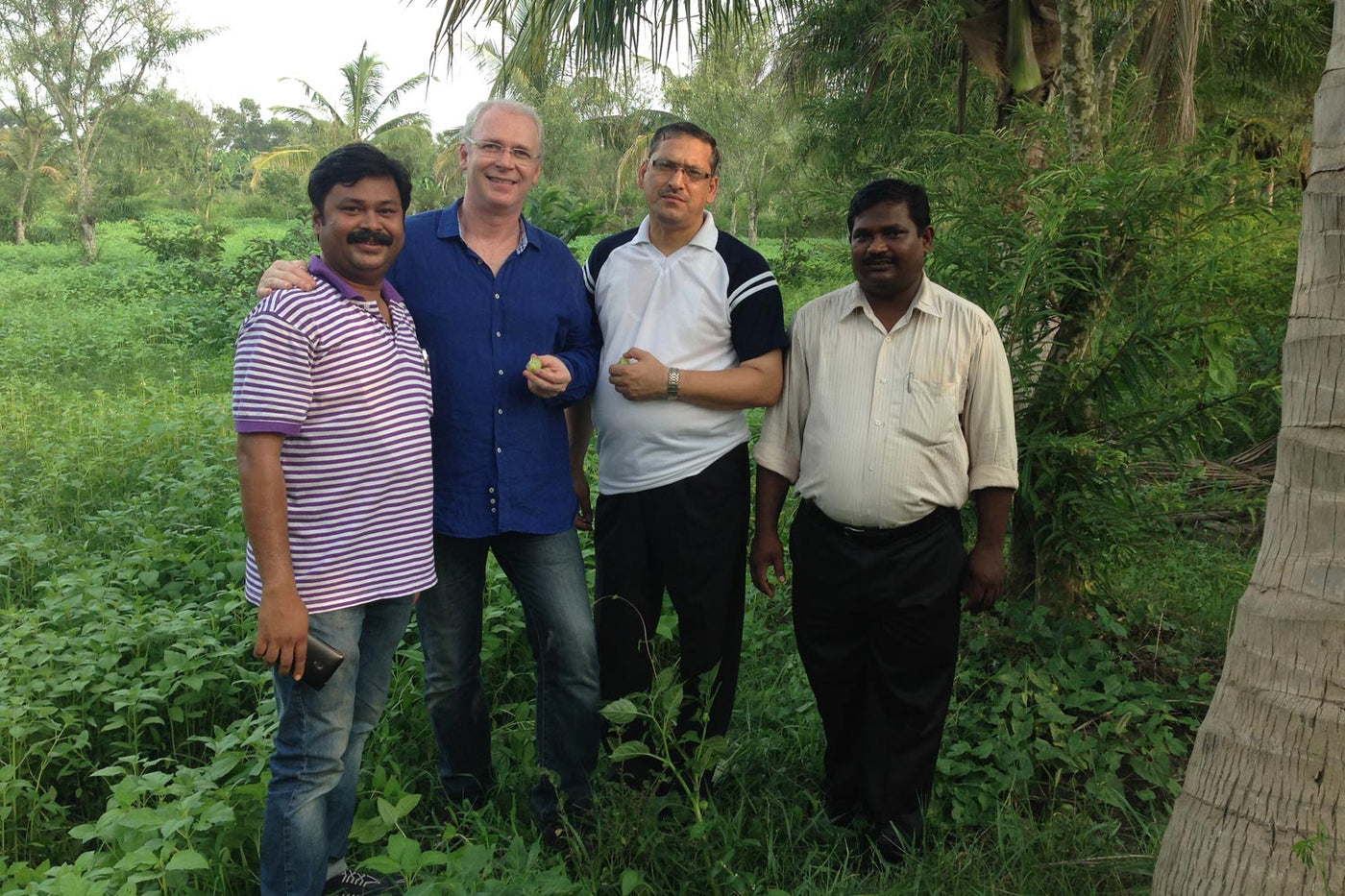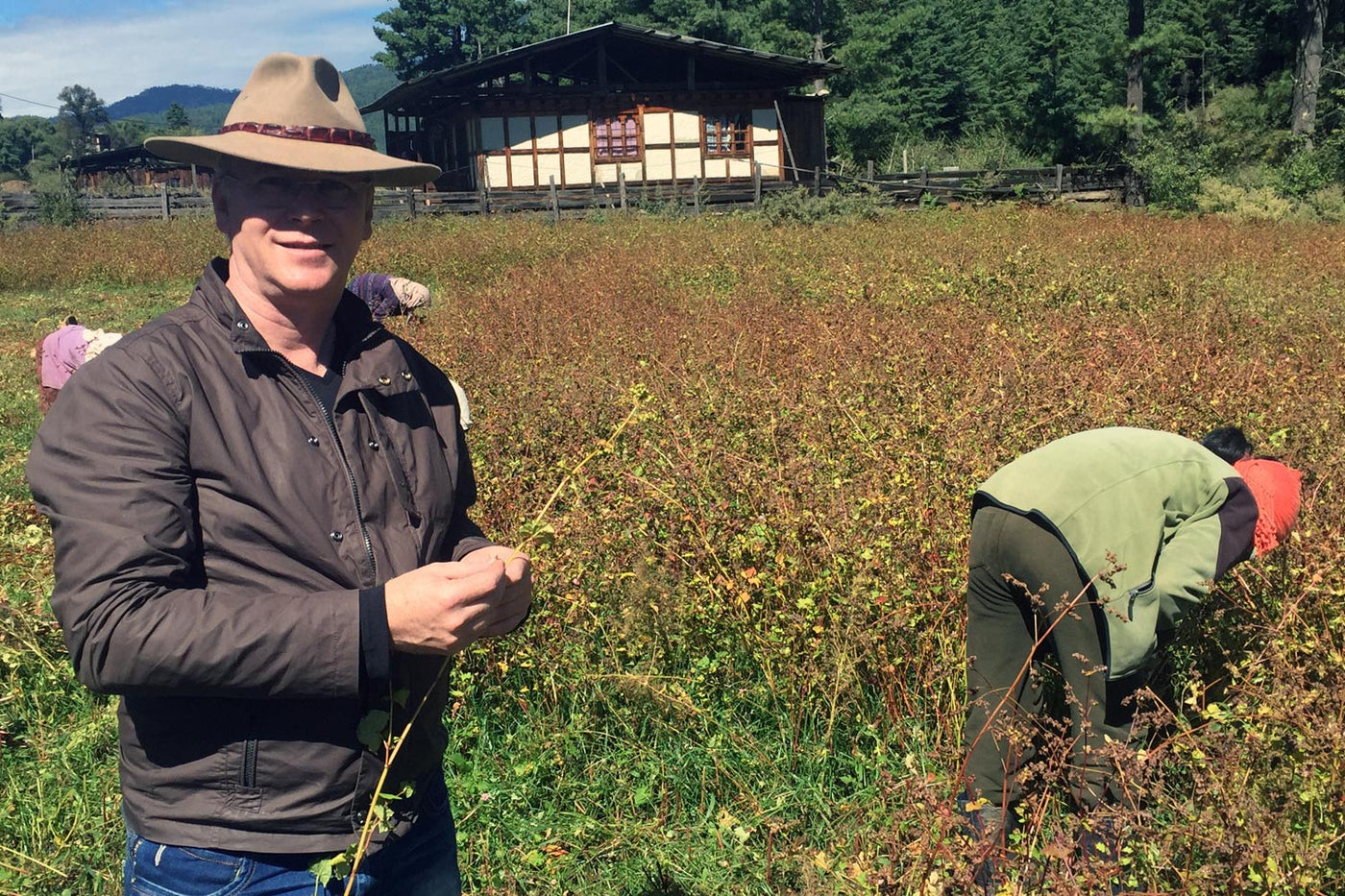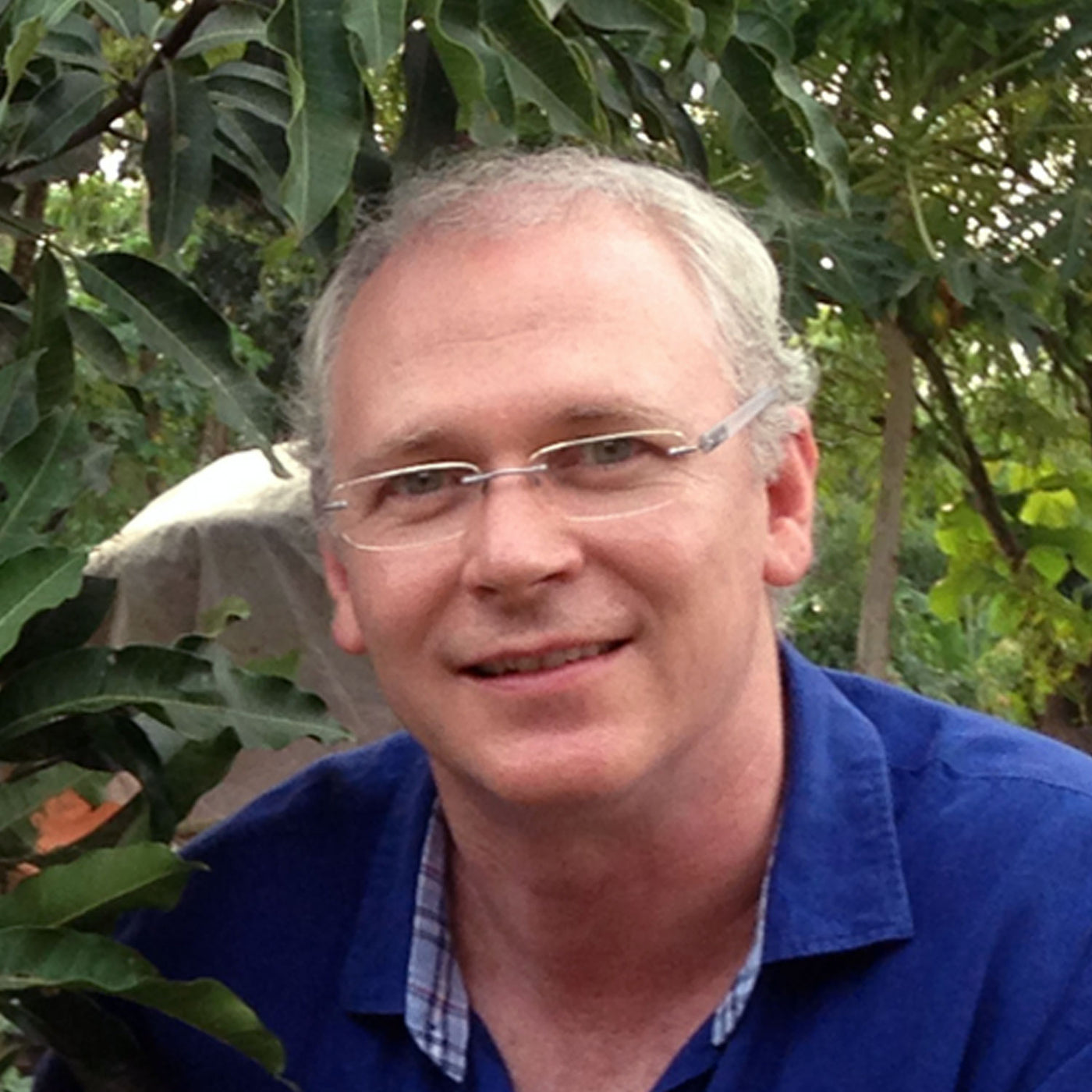Interpreting Ancient Plant-based Wisdom in India

A Lifetime of Plant-based Research
A Road to Discovery
A Road to Discovery
Dr. Ramesh Chandra Uniyal (Ph.D. Botany, Medicinal Plants) and Peter Francis (Founder) traveling together through India sourcing certified organic Ayurvedic plants.
My good friend and colleague
Dr. Ramesh Chandra Uniyal
With more than 24 years of experience in Bioresources Management and Development. Worked with Herbal Industries, Government departments, International Organisations and University. Published 3 books and more than 70 papers along with 1 Documentary film. Prepared Strategy for Sustainable Development of Medicinal Plants Sector in Uttarakhand under UNDP-GEF-MoEFCC project. Prepared and successfully implemented number of funded projects on mapping the ideal locations in India to grow all varieties of Ayurvedic plants for the Indian Government.
"A man of inspirational knowledge of Ayurvedic plants, and their medical use. We traveled extensively through out India evaluating and sourcing certified organic growers together."

India and Ayurvedic Knowledge
Traditional Plant-use Meets Modern Science
"My time in India working with and learning from Dr. Uniyal and Dr. Katiyar over four years was one of my most enlightening and important pivotal moments of my formulating career. There combined understanding of the unique combination of Botany, Ayurvedic Traditional Medicine and Modern Medicinal use of plants inspired and influenced me vastly. Together they changed my way of interpreting ancient Ayurvedic plant use and practices into modern scientific cosmeceutical formulating, and I will forever be grateful to have been afforded the honour of working so closely with them".
"My education in Ayurvedic Medicinal plants during my time in India taught me to view all plants through the eyes of a Botanist and a Pharmacologists. Prior to this exposure I viewed plants as whole plants... sounds a little obvious... however, I mean that I viewed them as a complete item."
"For example; Argan Oil was excellent for such-and-such a purpose, and Jojoba Oil was good for another purpose, Rosehip all was good for so & so, and Eucalyptus was good for X,Y,&Z!"
"Not necessarily so...the first, and most important, thing I was taught by my illustrious colleagues was this:

Certified Organic Goodness
The Most Important Lesson Learned
Unless the plant is grown organically or natively in its evolutionary intended environment (Wild Harvested), the plant often fails to create the active medicinal qualities (Secondary Metabolites) that it may be legendary for. "
WHY ORGANIC GROWING IS SO IMPORTANT TO PLANT ACTIVES?
Mother Nature is a complex chemical laboratory... she needs all the correct soil conditions, microbial companions in the soil, and in many cases the environmental challenges that life throws at the plant to survive in its native habitat.
The wonderful medicinal, healing, nurturing, antioxidant, anti-inflammatory, protective actives found in plants are called Secondary Metabolites.
They are produced as a direct effect of the plant defending itself from environmental challenges such as intense UV exposure, extreme heat, extreme cold, fungal attack, insect attack, drought, animal grazing, etc...
These challenge-events in a plant's life have caused the plant to evolve over the millennium to produce the various chemicals to protect itself and flourish in a particular environmental setting.
Further, the plant roots produce "exudates", fluids that feed and nurture certain types of beneficial microbes (bacteria, fungi, yeasts) in the soil that the plant requires to survive. This is known as a symbiotic relationship.
The majority of root exudates, including primary metabolites (sugars, amino acids, and organic acids), are believed to be passively excreted from the roots on a constant low-level basis in order to maintain the beneficial soil microbes, however, here is the important bit...
Plants can modify the concentration of exudates they excrete in order to influence the microbial environment in the soil around them. In other words, the plant switches on and controls the beneficial bacterial growth around their roots as and when required.

All Ecosystems are Unique
The Sectret Life Of Soil
In turn, these microbes produce the vital chemicals the plant requires to produce its medicinal actives. The plants can not create these medicinal qualities without the correct microbiome being present in the soil.Take the plant out of its natural habitat or grow it synthetically and all of the beneficial secondary metabolites may not be produced.
"Similarly to the human gut microbiome which lives symbiotically within each of us, the microbial life in the soil exists in a symbiotic relationship with the plants. Both need each other to create beautiful chemistry!" Peter says.
Additionally, the plant component (leaves, roots, stem, flower) must be harvested at the correct seasonal time in order for the beneficial actives to be present. If a plant is not harvested correctly then the secondary metabolites will not be present.
And finally, the plant biomass (leaves, roots, stem, flower) must be processed in a form that maintains the often sensitive fractions of sought after active secondary metabolites. These processes, when done correctly preserve these actives so that they can become bioavailable to the skin and scalp.
The Mark You Can Trust
Why Certified Organic
"The certified organic auditing process on an ongoing basis affords eco.kid organics the confidence of the legitimacy of every raw ingredient we use in our formulations. This way when we mark an ingredient on the label of any of our products, you can be 100% assured that it was sustainably sourced, true to the plant origin and will have the active secondary metabolites that we expect to benefit from."This is the eco.kid promise!